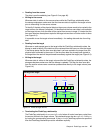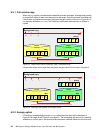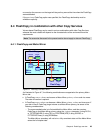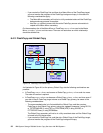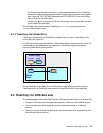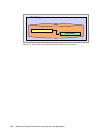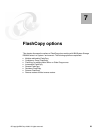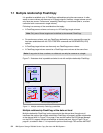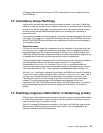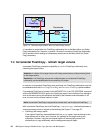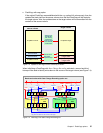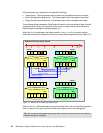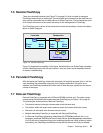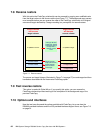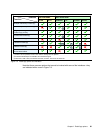Chapter 7. FlashCopy options 55
API support data set level FlashCopy, the VTOC and catalogs are not updated as they are
with DFSMSdss.
7.2 Consistency Group FlashCopy
Applications might have their data spread over multiple volumes. In this case, if FlashCopy
needs to be used for multiple volumes, these all have to be at a consistent level. Consistency
groups can be used to help create a consistent point-in-time copy across multiple volumes,
and even across multiple DS6000 storage systems, thus managing the consistency of
dependent writes.
It is possible to establish a consistency group using those interfaces that support this function
(see Figure 7-8 on page 61). If using TSO commands, then the TSO FCESTABL command
with ACTION(FREEZE) option should be used, specifying all FlashCopy pairs belonging to
the Consistency Group.
Dependent writes
If the start of one write operation is dependent upon the completion of a previous write, the
writes are
dependent. Application examples for dependent writes are databases with their
associated logging files. Also updates to catalogs, VTOCs as well as VSAM indexes, and
VSAM data components rely on dependent writes. For instance, the database logging file will
be updated after a new entry has been successfully written to a table space.
The chronological order of dependent writes to the FlashCopy source volumes is the basis for
providing consistent data at the FlashCopy target volumes. For a more detailed
understanding of
dependent writes and how extended long busy conditions enable the
creation of consistency groups, thus ensuring data integrity on the target volumes, you can
refer to the discussion in 13.3.1, “Data consistency and dependent writes” on page 136.
With the
Freeze FlashCopy Consistency Group option, the DS6000 will hold off I/O activity to
a volume for a time period by putting the source volume in
extended long busy state. Thus, a
time slot can be created during which the dependent write updates will not occur, and
FlashCopy will use that time slot to obtain a consistent point-in-time copy of the related
volumes. I/O activity resumes when all FlashCopies are established, and the
thaw
functionality (the TSO FCWITHDR command with the ACTION(THAW) option) is invoked, or
when the extended long busy (ELB) time slot expires (the ELB window is 2 minutes by
default).
7.3 FlashCopy target as a Metro Mirror or Global Copy primary
With this option the FlashCopy target volume can also be a primary volume for a Metro Mirror
or Global Copy relationship. A user may wish to use this capability to create both a remote
copy and a local copy of a production volume.
Figure 7-2 on page 56 illustrates this capability. In this figure, the FlashCopy target and the
Metro Mirror (or Global Copy) primary are the same volume. They are displayed as two
separate volumes for ease of understanding.



